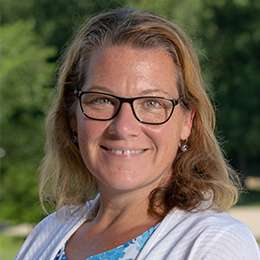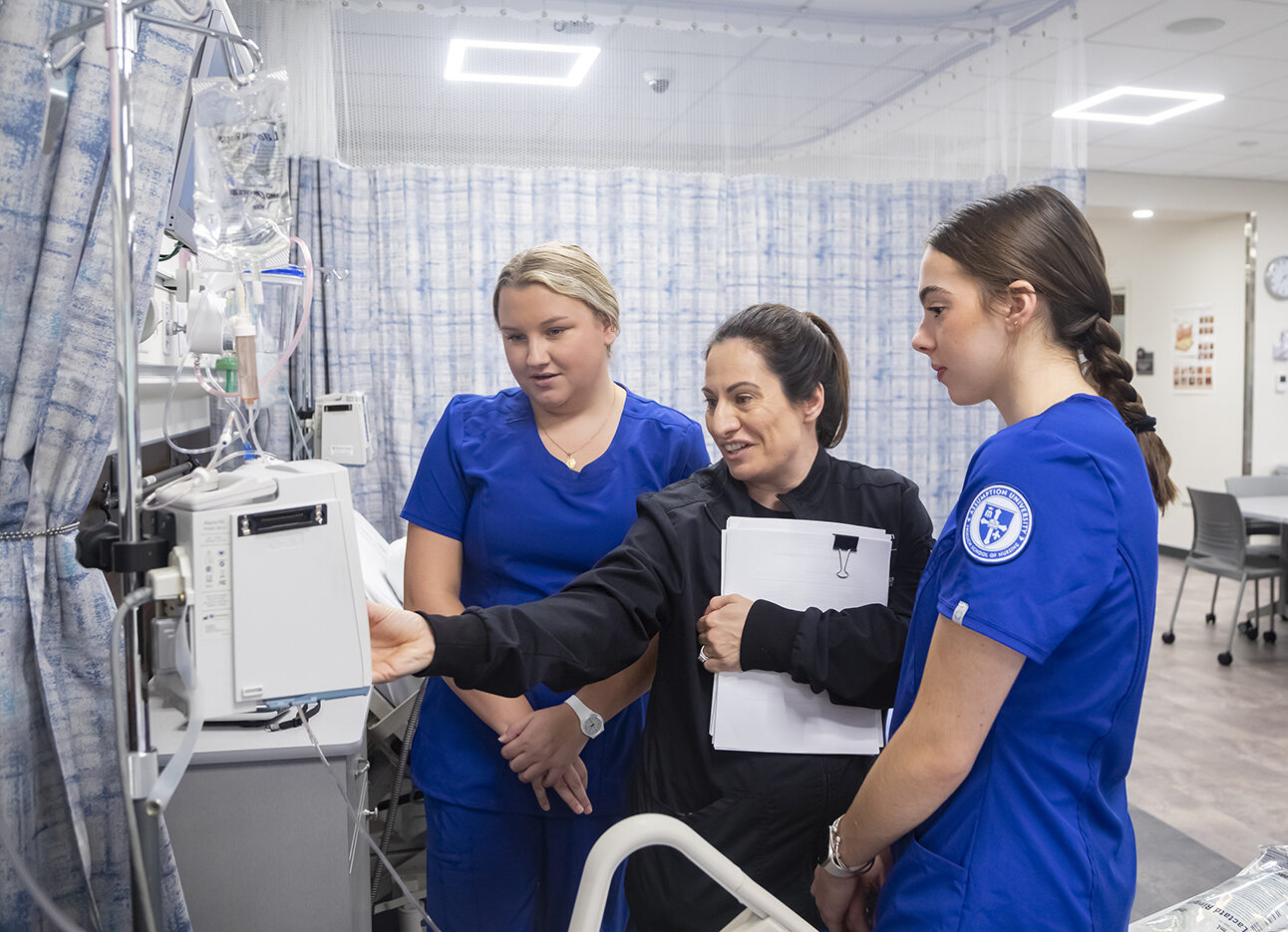 Caitlin M. Stover, PhD, RN, PH-CNS, CNE, CNEcl
Caitlin M. Stover, PhD, RN, PH-CNS, CNE, CNEclDean of Nursing
Assistant Professor of Nursing
The faculty, staff, and students in the Froelich School of Nursing (FSoN) extend our thanks to you for your willingness to serve as a clinical preceptor for our undergraduate pre-licensure nursing students.
We recognize the time, energy, and patience involved in providing nursing students with a high-quality clinical experience. The FSoN values your leadership skills and clinical expertise, and we will support you throughout the semester as the role model of best practice in compassionate nursing care.
This website serves as a resource to you, the student, and the faculty clinical coordinator who is your direct contact with the FSoN. Please take the time to review the information, meet with the faculty clinical coordinator, and have all of your questions answered.
On behalf of the entire Assumption University campus and the Froelich School of Nursing, thank you for your dedication to the future professionals of the workforce, your willingness to share your professional talents and gifts, and for knowledge, skills, and attitudes that you will help bestow unto our nursing students.
With gratitude,
Caitlin M. Stover, PhD, RN, PH-CNS, CNE, CNEcl
Dean of Nursing
Assistant Professor of Nursing
FSoN Mission
To cultivate an intellectual community committed to preparing leaders in the delivery of safe, high-quality, and compassionate professional nursing practice. Graduates are prepared, in accordance with the principles of Catholic healthcare ethics, to care for, serve, and promote the health of society.
FSoN Vision
Sustain an engaged community of students and educators recognized as stewards of local and global health through excellence in nursing practice, scholarship, and service.
FSoN Core Values
Core values are a set of fundamental beliefs, ideals and practices that inform the School on how to allocate resources, make important decisions for all stakeholders, and grow as a body of individuals dedicated to professional growth and human flourishing.
Caring
Autonomous actions of the nurse characterized by integrity, compassion, and advocacy for all persons by embracing cultural humility, diversity, and person-centered care.
Excellence
Pursuing and achieving goals of the highest caliber.
Lifelong Learning
Valuing the deliberate and voluntary action of acquiring new knowledge, skills, and attitudes for personal and professional growth and opportunity.
Nursing Knowledge
The evidence base of the discipline, that encompasses liberal arts and nursing science philosophies, theories, and research, used to guide safe practice and improve patient outcomes..
Service
Collaborative efforts with other professionals and the public to honor human dignity by protecting human rights, promoting health equity, and reducing health disparities.
Teamwork
Engaging in cooperative action and effective communication to facilitate the coordinated delivery of safe patient-centered care.
FSoN Teaching Philosophy
In accordance with the mission of Assumption University, the nursing faculty are committed to educating baccalaureate-prepared nurses with the professional competence and clinical judgement to meet the dynamic health needs and improve the health outcomes of the local Worcester community, the Commonwealth of Massachusetts, the nation, and the global community. The nursing faculty subscribes to the principles of an Assumptionist and Catholic philosophy of education, which includes a rich and productive relationship between faculty and students founded not simply on duty and responsibility, but on free, generous and gratuitous love instituted by the respect for human dignity.
The nurse educated at the Froelich School of Nursing will be prepared to function in a variety of settings, assisting individuals, families, and communities to attain, retain, or regain optimal health throughout their lifespans, with a specific focus on the diverse factors that impede or facilitate this health. The Assumption liberal arts education, incorporating as it does rigorous work in the behavioral and natural sciences, the humanities, and the arts, will guide the development of the “whole student,” mind, heart, and spirit, and spur a pursuit of life-long learning and commitment.
Nursing students value human (patient) agency and their ability to actively participate in the creation of change, even amidst the most oppressive conditions. Students advocate for a just society – one where resources are equitable, and all persons are physically, psychologically, socially, and spiritually safe and secure.
Family Educational Rights and Privacy (FERPA)
Assumption upholds the Family Educational Rights and Privacy Act of 1974 (FERPA) which affords the students certain rights with respect to their educational records. A summary and instructional tutorial of student rights is available at the Department of Education website. As a member of the Assumption Nursing clinical team, conversations about student progress and achievement are appropriate within the team but should otherwise be treated as confidential. All student papers including the faculty documentation and evaluation of progress are treated as confidential.
Assumption University & Froelich School of Nursing Curriculum
The action of nursing is an art and science. The nurse is the bridge, who compassionately applies the learned knowledge, skills, and attitudes while providing patient-centered care.
The NUR courses were developed and are taught using the Linda Caputi Model for Teaching Thinking in Nursing – A Deliberate Process (2018). In her model, Caputi integrates Patricia Benner’s Novice to Expert Theory, Tanners Clinical Judgment Model, and adds her own emphasis on metacognition which facilitates the development of knowledge, skills, and attitudes for the nurse to perform actions based on sound clinical reasoning and clinical judgement. Students are introduced to the model’s components in the first course – and each course thereafter. The clinical courses are developed with deliberate assignments and exercises where the student uses the steps of “noticing, interpreting, responding, and reflecting” to demonstrate reasoning and judgment.

